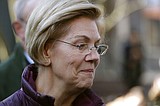Philadelphia council votes to limit police protest response
Maryclaire Dale | Hagadone News Network | UPDATED 5 years, 1 month AGO
PHILADELPHIA (AP) — Philadelphia could soon join other cities in blocking police from using tear gas, rubber bullets or pepper spray on protesters as the city continues to churn over the fatal police shooting of a Black man days before the heated presidential election.
The sharp political battles being drawn nationwide over the 2020 election could be seen in microcosm Thursday in the nation’s birthplace.
In the morning, the Democrat-controlled City Council voted to rein in the police response to those exercising their First Amendment right to protest. The police commissioner and Mayor Jim Kenney back the intent of the “less-lethal" weapons ban. But the mayor wants to review it before signing off, a spokesman said.
Hours after the vote, U.S. Attorney William McSwain, who was appointed by President Trump, announced charges against a Philadelphia social studies teacher and three others for their alleged roles in the torching of two police cruisers during violent clashes between police and demonstrators who were protesting against racism and police brutality, five months earlier.
The moves follow days of civil unrest, store break-ins and ATM thefts after the shooting of Walter Wallace Jr. that led the mayor to lock down the city Wednesday night through an overnight curfew. Police were preparing to release the 911 call and police body camera footage of the encounter with Wallace. Police have said officers fatally shot Wallace on Monday after he ignored orders to drop a knife. Wallace’s mother said she warned police that her son was having a mental health crisis.
“Our city is hurting. I think the unjustified shooting of Walter Wallace Jr. this week has our city both raging and grieving, but also extraordinarily purposeful about taking action,” said Philadelphia Council member Helen Gym, who introduced the measure to rein in the police response.
She said the city had a long record in recent years of respecting protesters and refraining from using tear gas, rubber bullets or pepper spray against them at random. That changed this spring, when police repeatedly deployed the tactics on large crowds, even after forcing protesters who had blocked a highway into a corral they could not escape.
“It was undisciplined, it was indiscriminate and it hurt a lot of people,” Gym said.
Her bill passed after two long days of testimony from people injured during protests that rocked the city in late May and early June.
“The police shot tear gas near children picnicking in Malcolm X park with their families," the Reverend Abby Tennis, a resident of West Philadelphia teargassed on May 31, told council members earlier this month. “The police shot teargas past elders holding themselves up with their canes as they stood outside their homes on 52nd street. … The police shot tear gas past toddlers and mothers, standing on their second and third floor porches.”
In the teacher's case, McSwain said 29-year-old Anthony Smith and two others put “combustible materials” into a cruiser near City Hall that was already on fire on May 30. Another man was charged separately with setting fire to a second cruiser. Smith, who is Black, helped organize the Philadelphia Coalition for Racial and Economic Legal Justice, known locally as Philly for REAL Justice.
McSwain, in a statement, said he supports peaceful protests, “but violence is not speech.”
“There is no right to riot, loot, rob, destroy or commit arson. If you engage in violent civil unrest and commit a federal crime in this district, we will come after you as hard as we can because residents deserve safe and secure neighborhoods, not mayhem," he said Thursday.
Smith, who teaches in a city charter school, was awakened in his bed Wednesday morning and arrested, his lawyer said.
“This fits into the law and order narrative, of trying to criminalize dissent, which the Justice Department has laid out under (Attorney General William) Barr for the last four or five months,” Smith's lawyer, Paul Hetznecker, said.
He noted the arrest came five months after the incident, five days before “the most important presidential election of our time," and through what he called an obscure statute used against Black Panthers in the 1960s.
Gym, in response to the indictment McSwain announced, said “I think it’s very clear that the right to peaceably demonstrate is in question."
ARTICLES BY MARYCLAIRE DALE

School shutdowns raise stakes of digital divide for students
WINNSBORO, S.C. (AP) — Students struggling to get online in a rural South Carolina county received a boost last week with the arrival of six buses equipped with Wi-Fi, some of the hundreds the state has rolled out since schools were closed by the coronavirus outbreak.

A promising 2020 presidential campaign for women falls short
At her home in suburban Detroit, Jill Warren spent Thursday morning glued to her phone, searching for news about the woman she fiercely believed should be the next president of the United States: Sen. Elizabeth Warren.
US appeals court: Attack on gay man enough for asylum claim
PHILADELPHIA (AP) — An asylum seeker from Ghana who said he was attacked by a mob led by his father because of his sexuality has shown a valid fear of persecution, a U.S. appeals case said in a case argued by two law students.
